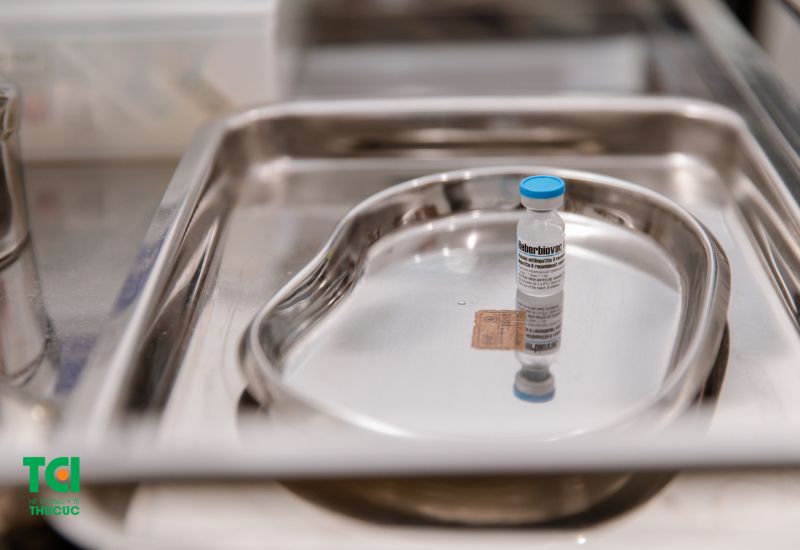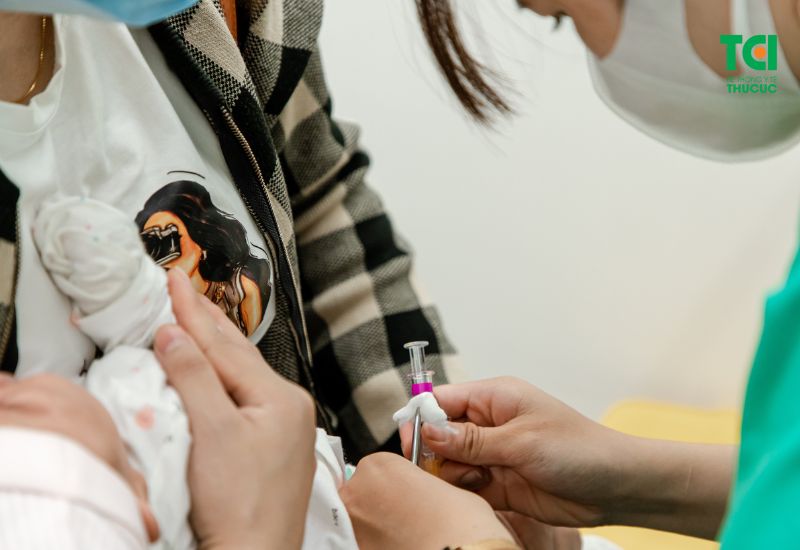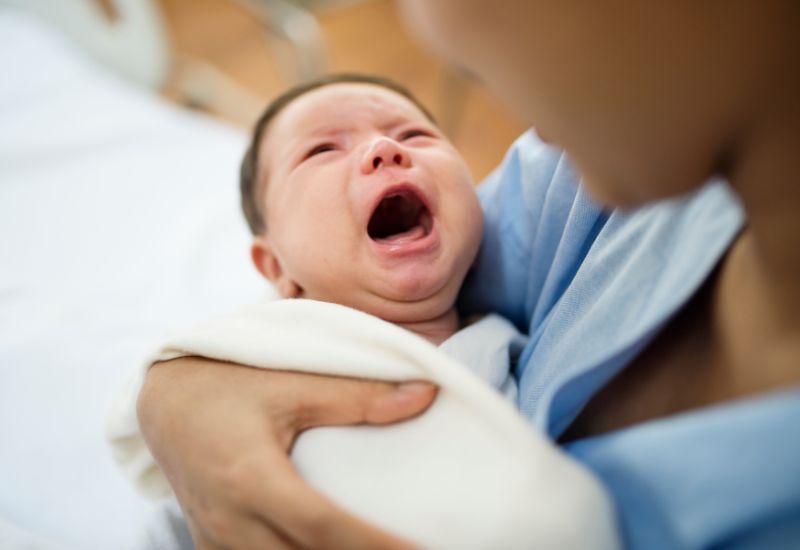Vaccination from the earliest days of life plays a vital role in safeguarding a child’s health. For first-time parents, there may be uncertainties surrounding the first vaccine for newborns—what it is, when it should be given, and what to expect. This article provides comprehensive information to help parents feel more prepared and confident during this crucial stage.
1. The Importance of Vaccination in Newborns
Vaccination is a medically proven, effective method for preventing many serious infectious diseases. While newborns receive temporary immune protection from their mothers through the placenta and breast milk, this passive immunity only lasts for a limited time. Administering the first vaccine for newborns helps trigger the infant’s own immune system to build protective antibodies early on.
Several infectious diseases pose significant health risks to infants and can potentially be life-threatening. Vaccination is the most effective preventive measure to reduce these risks and ensure long-term protection.
2. The First Vaccine for Newborns
2.1. What is the First Vaccine Newborns Receive?
The first vaccine recommended for all newborns is the hepatitis B vaccine. This should be administered within the first 24 hours after birth, and it serves several crucial purposes:
– Prevents mother-to-child transmission of the hepatitis B virus, particularly vital if the mother is a hepatitis B carrier.
– Protects the infant from hepatitis B infection during the early months when their immune system is still underdeveloped.
– Reduces the risk of long-term complications, such as liver cirrhosis or liver cancer in the future.
Following the initial dose, infants will need an additional 2–3 doses of the hepatitis B vaccine as part of the routine immunization schedule to ensure full protection.

The first vaccine that newborns should receive immediately after birth is the hepatitis B vaccine.
2.2. How is the First Vaccine Administered?
The process of administering the first vaccine for newborns follows strict medical protocols to ensure safety and efficacy:
– Step 1 – Pre-vaccination assessment: A healthcare provider will perform a general health check to assess the baby’s condition, including weight, temperature, breathing rate, and feeding reflexes. The mother’s medical and allergy history will also be reviewed.
– Step 2 – Vaccine preparation: Medical staff check the vaccine’s name, expiration date, and storage conditions. A sterile 0.5 ml dose of hepatitis B vaccine is prepared for injection.
– Step 3 – Administration: The infant is placed on their back with legs extended. The injection site (the outer thigh muscle) is disinfected. A trained professional administers the vaccine intramuscularly at a 90-degree angle. After the full dose is injected, the needle is withdrawn and sterile cotton is applied to the site.
– Step 4 – Post-vaccination monitoring: The baby is observed for at least 30 minutes at the medical facility. Staff will document the vaccination and guide parents on how to monitor the baby at home.
All procedures are carried out by qualified healthcare personnel under sterile conditions, ensuring safety and adherence to vaccination standards.

Healthcare professionals administer the intramuscular injection at a 90-degree angle to the anterolateral thigh.
2.3. Side Effects and Post-Vaccination Care
Like all vaccines, the hepatitis B shot may cause some mild side effects. Understanding these reactions helps parents provide appropriate care during the post-vaccination period.
Common side effects may include:
– At the injection site: Redness, swelling, pain, or a small lump.
– Systemic reactions: Low-grade fever (usually under 38.5°C and lasting 1–2 days), irritability, excessive crying, sleep disturbances (either sleeping more or less than usual), or temporary feeding difficulties.
Most side effects are mild and resolve without treatment. However, parents should monitor their baby closely and seek immediate medical attention if any of the following occur:
– Severe temperature reactions: Fever above 38.5°C that persists or fails to respond to antipyretics, or unusually low body temperature (below 35.5°C).
– Respiratory concerns: Rapid breathing (over 60 breaths/min), wheezing, or bluish lips and fingertips.
– Other warning signs: Seizures or stiffness, inconsolable crying lasting over 3 hours, complete refusal to feed for 24 hours, or signs of infection at the injection site such as pus, widespread redness, or swelling.

If a baby cries inconsolably for more than three hours after receiving the hepatitis B vaccine, parents should take the child for a medical evaluation.
How to care for your baby after vaccination:
– Care for the injection site: Keep the area clean and dry. Avoid massaging or applying ice. Dress the baby in loose clothing to prevent irritation.
– Managing fever: Monitor temperature every 4–6 hours. Dress the baby in breathable clothes and use a warm cloth to gently wipe the body. Use fever-reducing medication only under medical advice.
In summary, the first vaccine for newborns is a crucial early step in protecting their health. When administered correctly and on schedule, it significantly reduces the risk of serious illness. Parents are encouraged to follow the national immunization program and consult healthcare providers when in doubt. By staying informed and proactive, you give your child the best possible start in life.








